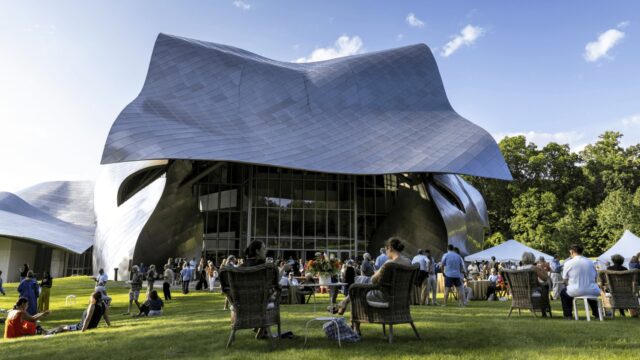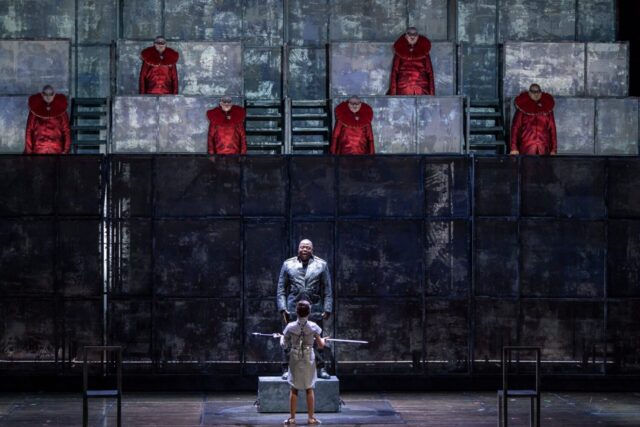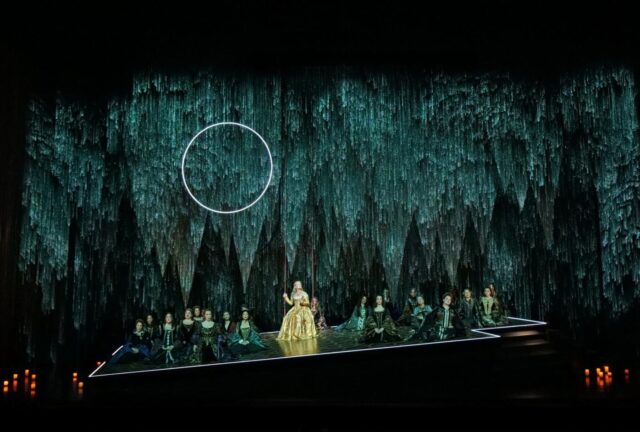
Opera often carries a grand reputation, filled with iconic works that have become synonymous with the genre. However, much of opera’s brilliance exists within less familiar compositions, those that time and popular trends have obscured.
Through innovative performances, thought-provoking programming, and a commitment to educating new generations of musicians and audiences, Bard College has become a cultural hub under the leadership of its influential conductor and academic figure.
At the core of this artistic renaissance lies a deeper mission. Old productions, once thought forgotten, find new life, and audiences, who may not be aware of the immense variety within the operatic tradition, discover fresh and exciting works. This focus on revival and innovation positions Bard College as a unique institution that both educates and entertains. Let’s explore the key drivers behind this movement.
Leon Botstein: Visionary Conductor with a Mission
Leon Botstein’s artistic leadership stands out in the modern music world. With an impressive career spanning decades, Botstein has not only shaped the future of Bard College but also pushed the boundaries of classical music. His work as a conductor and educator has turned the college into a hotspot for musical innovation.
Leon Botstein has made it his mission to showcase works that many other institutions ignore. His ability to balance tradition with creativity allows Bard College to become a platform for both classic and obscure compositions. With his leadership, the institution doesn’t follow trends; instead, it sets new ones by putting forgotten pieces of art back into the limelight.
Bard SummerScape: A Stage for Rediscovery

Bard SummerScape stands as one of the most prominent examples of how Bard College engages with lesser-known operatic works. SummerScape’s programming consistently brings attention to underappreciated compositions, turning them into a core part of the college’s artistic offerings. The festival isn’t about merely preserving the past but breathing new life into it, making each performance feel as fresh as if it were premiering for the first time.
By doing so, the college does more than just provide an education; it offers an experience where both performers and audiences are exposed to music that challenges and expands their understanding of the genre.
Educational Programs: A Unique Approach to Opera Classes
Bard College integrates its passion for revival into its educational structure. Students are not simply learning established works of art but are encouraged to explore underrepresented pieces. This not only diversifies their skillset but also prepares them for a future where versatility in music becomes increasingly important. The college’s educational approach stands apart, as it actively pushes its students toward works that require them to think beyond the well-known.
Courses and workshops provide students with a comprehensive look at the full range of operatic history, including obscure compositions. Bard College’s approach ensures that students leave with a broader understanding of the musical tradition, making them better equipped for diverse performance environments.
The Bard Music Festival: Expanding Horizons
The Bard Music Festival, another significant program at the college, continues the theme of rediscovery. Each year, the festival focuses on a specific composer or theme, often highlighting figures who have not received widespread recognition in the larger classical music world. The festival offers an immersive educational experience for both students and attendees.
Much like Bard SummerScape, the Bard Music Festival isn’t only about performing. It also involves deep research and collaboration between scholars, performers, and students. The result is an institution that fosters learning through an active, performance-based curriculum.
Forgotten Works: A Focus on Rediscovery
Botstein’s passion for lesser-known compositions extends beyond performances. His work involves extensive research into neglected operatic pieces. By collaborating with scholars, musicians, and historians, Bard College unearths works that challenge modern conventions and offer a fresh perspective on classical music. The revival process not only involves performance but also involves educating audiences about the historical and cultural significance of these pieces.
Each rediscovered work becomes a teaching tool, both for those on stage and in the audience. Bard College creates an environment where learning and performance coexist, offering a truly unique musical experience.
An International Influence: Expanding Beyond Bard College
Though Bard College remains central to Botstein’s artistic endeavors, his influence spreads far beyond its campus. As the conductor for multiple orchestras across the world, Botstein has made it a point to bring attention to forgotten operatic works in other venues as well. His dedication to uncovering lost gems shapes not only his work at Bard College but also his international engagements.
This wide-reaching influence ensures that Bard College’s mission to revive hidden operatic works resonates on a global scale. Botstein’s leadership allows the institution to become a beacon for artistic revival in opera.
A Cultural Renaissance at Bard College

Bard College’s approach to musical education transcends the traditional boundaries of academia. By blending education with artistic performance, the college allows students to engage with works that challenge the norm. This approach not only educates but also pushes students to think critically about the role of opera in modern culture.
Botstein’s leadership at Bard College continues to make a significant impact, not only on the students but also on the broader cultural landscape. His dedication to reviving obscure operatic works makes Bard College a pivotal player in the global music scene.
Building Future Generations of Musicians
At the heart of Bard College’s mission lies the development of future generations of musicians. Through a comprehensive and forward-thinking curriculum, students receive the tools necessary to excel in the world of classical music. More importantly, the college encourages students to explore beyond the traditional operatic repertoire, preparing them for a diverse range of performance opportunities.
By exposing students to underappreciated works, Bard College ensures that its graduates are not just technically proficient but also artistically versatile. This well-rounded approach gives students an edge in an increasingly competitive musical landscape.
Final Thoughts
Through Bard’s innovative programs, under the leadership of Leon Botstein, the institution continues to challenge the conventions of classical music. By blending education with performance, Bard College offers students and audiences alike a fresh perspective on opera, one that embraces both the old and the new.
The impact of this work cannot be overstated. As Bard College pushes the boundaries of operatic performance and education, it ensures that future generations of musicians and audiences will appreciate the full spectrum of the genre, including the many hidden gems that still await rediscovery.









